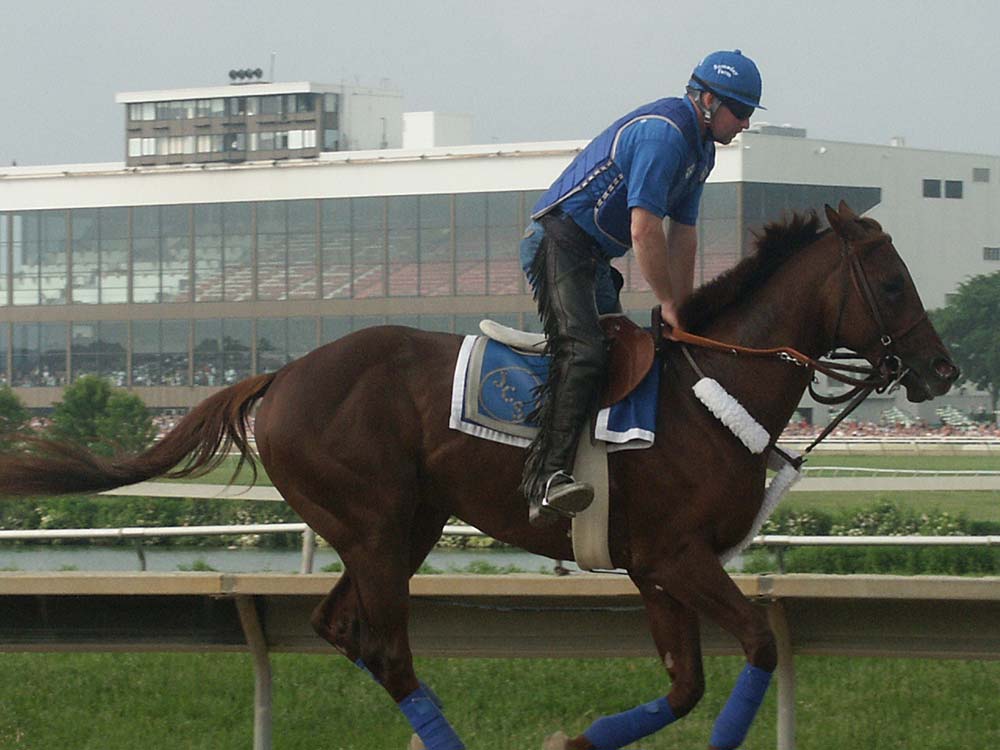
It was heralded as a moment of bipartisanship in these troubled and polarized times—the Horseracing Integrity Act (HIA) won approval in the House Energy and Commerce Committee in early September by a 46-5 vote. Not long afterward, Senator Mitch McConnell (R-KY) introduced a Senate version of the bill, the Horseracing Integrity and Safety Act (HISA), and promised to push for its passage before the end of this year.
The Horseracing Integrity Act has wandered in the bardo of Washington for several years. First introduced in 2015, the legislation, meant to create an effective drug control program that would ensure greater safety for racehorses and a measure of integrity for the sport, failed to generate enough support. It was reintroduced in 2017 with some enhancements but failed again to gain traction. But now in the midst of a pandemic that has upended horseracing—along with virtually everything else in the country—the bill has finally achieved a measure of stardom.
Even without the pandemic, horseracing had suffered some reputational blows in the past several months. Horse fatalities and catastrophic injuries at racetracks drew headlines worldwide, as well as scathing criticism of the industry from animal welfare groups. States like Kentucky, California and New York were facing substantial losses if the horseracing industry were to crumble under the weight of drug scandals, horse deaths and the rising anger of animal lovers.
Thus, the legislation and the apparent unity it is generating in Washington, arrived like the proverbial knight in shining armor.
A Coalition of the Willing?
Support for the Horseracing Integrity Act is not universal, however. The United States Trotting Association (USTA) has called McConnell’s bill “a Thoroughbred bill written by elite Thoroughbred interests in an attempt to address elite Thoroughbred problems.” During debate on the bill in the House, Representative Kurt Schrader (D-OR) complained that the bill lacked authenticity, since there was no input from veterinarians on legislation intended to protect horses. Schrader is a veterinarian and has railed against the banning of race-day Lasix without, he believes, any scientific evidence.
The legislation would create an independent authority to develop anti-doping and racetrack safety standards for the horseracing industry. The panel would also be charged with responsibility for standardizing the list of permitted and banned substances for races.
USTA’s objections go beyond what they see as the exclusion of harness racing from the development of the legislation, and the focus on Lasix as the all-purpose villain in horseracing. USTA released a statement in support of Schrader’s position. “Certain Thoroughbred interests have made race-day Lasix a red herring to distract the public from the fact that Thoroughbred racing itself causes many of the deplorable, catastrophic breakdowns in the Thoroughbred breed,” they said. “Race-day Lasix is not performance-enhancing, it is not doping, and it does not mask illegal substances.” They say that both the American Association of Equine Practitioners and the North American Association of Racetrack Veterinarians support the use of Lasix and oppose this legislation.
Since the legislation has not been passed, it’s unclear exactly how the drug testing and safety standards will be developed and enforced. But USTA says that the bill would create a drug-testing authority that has no experience in animal testing.
Is It Unconstitutional?
In mid-September USTA released a white paper that questions whether the proposed legislation is even Constitutional. Russell Williams, the USTA President, says that an analysis of the legislation completed by the association’s law firm, Gibson Dunn, has concluded that HISA is unconstitutional. “The most important of several troubling themes is the (drug testing) Authority’s lack of accountability. We could debate how to get better performance out of our state racing commissions. But there is no question that the state commissions are answerable to the executive and, ultimately, legislative branches of their state governments. They are accountable, and if we don’t like the job they are doing, we can do something about it. The Authority is not accountable.”
The USTA says that if the law passes, it will most definitely be challenged. The Gibson Dunn white paper says that the “constitutional concerns raised by HISA are substantial and pervasive.”
Widespread Support Among Thoroughbred Groups
The Coalition for Horseracing Integrity, representing numerous humane organizations and Thoroughbred organizations, is marshaling support for HISA. Their mission is to get this legislation passed, with an assist from the critical mass of high-profile groups in their coalition. Organizations ranging from the Animal Welfare Institute and ASPCA to the Water Hay Oats Alliance (WHOA) and even the United States Harness Racing Alumni Association are supporting HISA. The National Thoroughbred Racing Association (NTRA) applauds the bill because of its potential to improve the integrity and safety of racing. Alex Waldrop, President and Chief Executive Officer of NTRA saluted McConnell while endorsing HISA. “We thank Senate Majority Leader Mitch McConnell for his willingness and unique ability to bring the industry to the table to craft this comprehensive legislation.”
Why has the logjam suddenly been removed from path of this legislation? Perhaps the time was right, for many reasons—some not as altruistic as one might hope. The bill was first introduced in 2015, which was not an election year. The Senate Majority Leader was not facing a credible threat to his re-election, and the economic impact of the pandemic had not forced Washington to look more closely at the industries and the people whose lives were being permanently altered by shutdowns and millions of cases of Covid-19. And the headlines chronicling equine deaths and catastrophic injuries was an unwelcome yet unavoidable leitmotif for horseracing throughout 2019 and into 2020.
Regardless of what happens on November 3, McConnell has promised to push the bill forward. If it survives anticipated challenges, questions will linger about why representatives of USTA did not have a seat at the table when these bills were considered.




